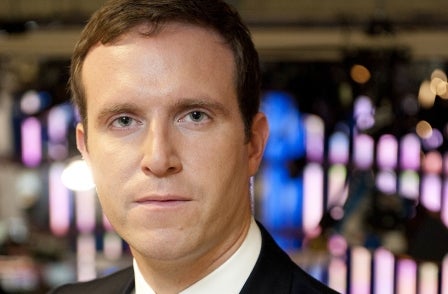
Sky News economics editor Ed Conway explains why economics has been the backdrop to some of the biggest stories over the past four years – and how some of his biggest scoops came from figures no one else had the appetite to dig into.
It doesn’t feel like all that long ago economics journalism was regarded as boring, inaccessible and hardly the kind of backwater an aspirant reporter should be aiming for.
Perhaps if there’s one good thing to come out of the financial crisis, it’s to have put right this misconception.
There has rarely been a day in the past four years when economics has been off the front pages of the papers or the tops of the bulletins.
And for good reason: even when economics isn’t the main story of the day, it’s the backdrop to the splash.
After all, economics is, at its simplest, the quasi-scientific study of human aspiration and behaviour, so it naturally underpins pretty much everything else.
Unfortunately all too often it’s presented in boring and inaccessible terms.
But this provides an opportunity. The most important two skills in economics journalism are being able to detect a story and being able to communicate it clearly.
In this the economics beat is not so different from the rest of journalism, except that the stories are often buried in statistics rather than war zones or Parliamentary lobbies, so being able to explain them, and their relevance to the audience, is all the more essential.
Good journalism is about telling someone something they didn’t know before, and with luck it’s something that will change the way they look at the world.
Many of my stories have come courtesy of statistics or databases no one else had the appetite to mine.
One of my first stories when I covered economics at the Daily Mail was to reveal that the number of manufacturing jobs lost under the Labour government had reached a million.
A few months later, I reported that Britain had just gone from being a net oil exporter to being a net importer.
Both were statistical nuggets that told you something about the decline of Britain’s industry and the North Sea, and both were sitting there in the official statistics.
I’ve no doubt that there are hundreds of ‘landmark’ stats like this – potentially great stories – sitting there in some statistical database somewhere, waiting for someone to ‘reveal’ them.
That said, some of my proudest stories have been those involving a bit of old-fashioned shoe-leather journalism. In late 2008 I revealed that the Bank of England was working on plans for quantitative easing – three months later they announced the policy.
In Washington earlier last year I revealed that the world’s leaders were making preparations for Greece effectively to default on half of its debt. Both stories involved nothing more technical than talking to sources and checking the lines.
But then economics journalism is also clearly different. Because the subject matter is often so complex, it demands that its writers and broadcasters are both storytellers and teachers.
To be good at it, you need to be able to inspire enthusiasm in those who read your stuff. That’s more difficult than it sounds, but one maxim helps: the more you understand the subject, the better you’ll be both at finding stories and telling them.
Email pged@pressgazette.co.uk to point out mistakes, provide story tips or send in a letter for publication on our "Letters Page" blog
